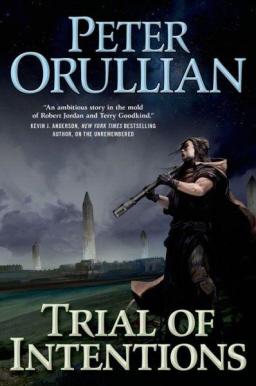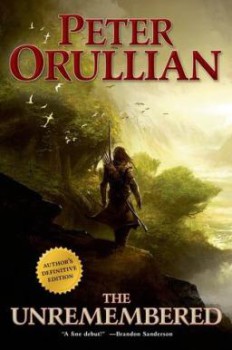Escalation to Fight: Understanding Magic in Trial of Intentions
For some reason, when I sat down to write this two-part article on war in fantasy fiction, Edwin Starr’s version of the song “War, what is it good for?” popped into my head. There’s probably a reason for that. We’ll see if it bears out as I go.
In the broadest possible terms, there are two ways a people or nation will attempt to deal with war: escalate and fight (with the hope of victory), or do all they can to avert war (without sacrificing their freedom). I admit of the oversimplification here, but it’s a short two-part article series, after all.
For part one, lets hit the first topic: escalation to fight. And I’ll use some examples from my current series to try and illustrate the point.
War is a mainstay in fantasy fiction, and in epic fantasy, particularly. The stakes are high — freedom, the right to rule, stuff like that. To win or defend such things usually requires armies, dangerous political intrigue, and war.
And like our own world, one way to bolster the odds is to create alliances, increase your military might through more boots on the ground, more engines of war. The problem (and opportunity for a writer) is that these alliances can be fraught with schemers willing to use them to their own advantage, as well as some who simply won’t join the cause.
In my second book, Trial of Intentions, I create what I call a Convocation of Seats. Think of it like the United Nations. Sort of. The ruling leaders of the world coming together in joint might against the “bad guys.”
In my world, the “bad guys” are races created by a dissenting god who went mad and “loose” in his creations. The council of gods sealed him away in part of the world with his creations for upsetting the balance he was meant to establish — trials for mankind in many forms. And before the gods abandon the world, they raise a barrier (a veil) to protect the races left behind that they believe have any potential for growth.
This veil is kept strong by a song of power. In my fantasy world, I’ve built a music magic system, and one of the songs — the one that keeps the veil working — is called Suffering, and it’s failing. I’ll come back to music in a moment.
So, then, returning to the escalation to war. As one regent is trying to form a great alliance to meet the threat that is pushing against the weakening veil, another faction is thwarting her efforts. They don’t share the same belief-system as the others; and they’re brokering for their own power, besides. The world will break if this convocation fails—there’ll be no army to meet the massive threat that will descend into the nations of men.
In the midst of these political machinations, this one regent realizes that even if she can get all the kingdoms to agree, it might not be enough. The sheer numbers of the army they could create may be insufficient this time.
War machines.
In the instance of my book, this takes a couple of forms. There is, in fact, an entire kingdom given to the production of what I call “gearworks.” This society is densely populated with smiths of various kinds all designing and building better war machines.
But perhaps stronger than this is what I call the Mor Nation Refrains. War songs. They belong to an isolationist people who are unlikely to help. Still, this represents escalation (in my world) of an unprecedented nature.
This time, the threat from beyond the veil is more dire than ever before. And to meet it, this lone regent realizes that mere muscle and bone won’t be enough. The escalation needs to go further this time. They need to exhaust approaches that might once have seemed inconceivable and forbidden.
Political subterfuge threatens all this. That’s not terribly different from our own world, is it? And the aggregate effect is that of desperation.
War is coming. One of those great wars you read about. The kind people call “the war to end all wars.” And in the face of such a thing, you arm. You do all you can. Pull out all the stops. Ask impossible, impractical, maybe unholy things. Because losing isn’t an option. Losing means annihilation.
Sounds a bit melodramatic, I’ll grant you. But when civilizations are fighting for survival, you can imagine the lengths they’ll go to for self-preservation.
This is what I mean by escalating to war. In the face of overwhelming odds, one honest response is to gather every last man and weapon and idea and try to organize them against the enemy.
And it can work. Has worked. It’s a viable response. And certainly a rich topic to mine as a writer of epic fantasy.
But it’s not the only response…
Tune in for Part Two of this article on May 31st.
Peter Orullian has worked at Xbox for over a decade, which is good, because he’s a gamer. He’s toured internationally with various bands and been a featured vocalist at major rock and metal festivals, which is good, because he’s a musician. He’s also learned to hold his tongue, because he’s a contrarian. Peter has published several short stories, which he thinks are good. The Unremembered and Trial of Intentions are his first novels, which he hopes you will think are good. He lives in Seattle, where it rains all the damn time. He has nothing to say about that. Visit Peter at www.orullian.com, or follow him at @peterorullian.


From my own family’s experience of Big Wars.
One grandfather was a conscientious objector in the Great War. As a reward, he was sent to the Western Front and served as a stretcher bearer (early form of combat medic). I have seen one of his medal citations, and it sounds as grim as we thought it was. This grandfather sat out the Second World War.
My other grandfather found a new lease of life in the Second World War. He had found it difficult to adapt to peace and to civilian life. He loved the war.
You say:
In the broadest possible terms, there are two ways a people or nation will attempt to deal with war: escalate and fight (with the hope of victory), or do all they can to avert war (without sacrificing their freedom).
Let me give another possibility.
My understanding of the people we now call Aztecs is that they sought to have perpetual war with their neighbours. On religious grounds.
It seems that some of the medieval kingdoms sought to sustain some sort of continuous warfare because that was what life was about.
Then there were the mercenary bands of medieval Europe who wanted continuous war for commercial reasons.
Basically war is a means of political communication — a way to get what you want and get people to do what you want them to do.
As Max Weber put it, the ultimately decisive means of political action is always violence.